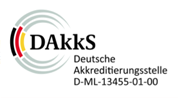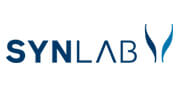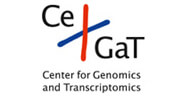LAB HOURS: MON - THU and SAT : 9:00 AM to 9:00 PM
FRI and SUN : 9:00 AM to 6:00 PM

Metabolic Screening Tests/Metabolic Genetic Disorders
Introduction
Metabolic Disorders or Inborn errors of metabolism (IEM) are genetic conditions which result in an inability of the cells of the body to perform certain functions such as breaking down food, making energy, or clearing toxic byproducts. These are most common in newborns and infants, however, they can also be found in adults. IEMs can lead to degenerative disorders with physical disabilities, neurological damage and even cause fatalities. Improved diagnostic techniques and therapies have now resulted in preventing some disorders (such as congenital hypothyreosis) or in less severe outcomes.
Metabolic disorders are classified into various categories such as small molecule diseases like amino acid disorders, organic acid disorders and fatty acid disorders. There are glycogen storage diseases (GSD) which are caused by enzyme deficiencies, organelle diseases such as lysosomal storage disease, peroxisomal diseases and mitochondrial disease.
Lysosomal storage disorders are classified according to the nature of accumulated substrate such as lipidosis, which is the accumulation of sphingolipids, mucopolysaccharidosis which is the accumulation of glycosaminoglycans, glycoproteinosis, which is the accumulation of glycoproteins (Lysosomal storage disorders).
Mitochondrial diseases are a highly diverse group of neurodegenerative disorders, often with muscular symptoms (encephalomyopathies). These mostly progressive disorders are often related to respiratory chain deficiencies, which result in energy loss for cells and organs. Peroxisomal disorders are caused by dysfunction of the peroxisome.
Some essential lab-based diagnostics for IEM
Metabolic Screening in Blood and Urine
- Basic chemistries such as liver, renal, thyroid, electrolyte panels
- Quantitative plasma amino acids
- Glucose
- Ammonia and lactate
- Acylcarnitine analysis
- Complete blood count
- Quantitative urine organic acids
- Creatinine kinase (CPK)
- Metabolic screening (filter card) at all ages
Neurogenetic Evaluation (Patients with Unclear Developmental Delay)
- Array CGH and Whole Exome Sequencing
- In cases of already classified disorders, we recommend panel diagnostics (e.g. mitochondrial, lysosomal, peroxisomal genetic panels).
Newborn Screening (NBS)
Rare metabolic and hormonal congenital disorders may cause serious deficiencies or can even result in fatalities. If diagnosed early with NBS, administering drugs or keeping the correct diet may prevent or reduce the consequences of such disorders.
NBS Parameters (Download Complete List)
- TSH (Hypothyroidism)
Congenital dysfunction of the thyroid gland causing severe dysfunctions in intellectual and physical growth. Treatment consists of administration of hormones. The disorder affects 1 in 4,000 newborns. It occurs 3 times more frequently in girls than in boys.
- 17-OH Progesterone (Congenital Adrenal Hyperplasia (CAH) )
Hormonal disorder caused by a dysfunction of the suprarenal capsules: Virilisation of female newborn babies, with possibly lethal prognosis in seizures determined by loss of salt. Treatment consists of administration of hormones. Most common is the congenital adrenogenital syndrome (AGS) or congenital adrenal hyperplasia (CAH) caused due to 21-hydroxylase deficiency. The disorder affects 1 in 10,000 newborns.
- Galactose (Galactosemia)
Inherited deficiency of galactose-1-phosphate uridyl transferase in erythrocytes. A lactose-free diet is required
(Lactose consists out of one molecule galactose and one molecule glucose). Frequency: 1 in 40,000 newborns.
- Phenylalanine (Phenylketonuria)
Defective metabolizing of the phenylalanine amino-acid. Treatment consists of a special diet. Once symptoms occur, a curing therapy is not possible anymore. The disorder must be detected in the newborn. Dietic restriction of phenylalanine supply is required. Frequency 1:10,000
- Biotinidase
Defective processing/recycling of biotin. Treatment consists in administering biotin lifelong. The frequency is 1:80,000.
- G6PDH (Glucose-6-phosphate dehydrogenase deficiency)
Glucose-6-phosphate dehydrogenase deficiency may lead to hemolysis of red blood cells when the affected persons come in contact with certain foods or drugs. Boys are more frequently exposed than the girls. The frequency depends on the country (higher frequency in Africa, Asia, Middle East).
- Branched Chain Amino Acids (Maple Syrup Disease)
Caused by defective breaking down of amino-acids. The amino acids leucine, isoleucine and valine are transformed into a-keto acids and then metabolized with vitamin B1 as a cofactor. Deficiency of a-keto acids degrading enzymes leads to an increase in the concentration of leucine, isoleucine and valine. Special Leucine-isoleucine-valine-poor diets are required as treatment. Frequency is 1:200,000.
- Immunoreactive Trypsin (Mucoviscidosis or Cystic Fibrosis)
Mucoviscidosis is a congenital disorder that leads to the defective metabolism of salts in glandular cells. That causes the formation of sticky mucus within the respiratory tract or of other organs; that can cause inflammation and failure of the respective organs. By various therapeutic approaches, the symptoms of the disease can be improved or ameliorated, so that the life expectancy of patients suffering from mucoviscidosis increases constantly. Frequency is 1 in 4,000.
- ACYLCARNITINES (LCHAD, VLCAD, MCAD DEFICIENCIES)
Defective metabolizing of long chain fatty acids: Metabolic seizures, coma, possibly lethal prognosis. Special diet treatment is required. Fasting episodes should be avoided. Frequency is variable, based on the type of disorder.
- Hb Electrophoresis (Hemoglobinopathies)
General: A hemoglobinopathy is an inherited blood disorder in which an individual has an abnormal form of hemoglobin (variant). The test determines the presence and relative amounts of abnormal forms of hemoglobin, e.g. HbS (indicative of sickle cell disease or trait), HbC, HbD, HbE, HbO, HbLepore, HbG, HbH (e.g. in alpha thalassemia), elevated forms of HbA2 and HbF (eg in beta thalassemia), etc. in order to screen for and/or diagnose a hemoglobin disorder. Some variants are difficult to assess in the newborn and should be re-tested at a later stage.
- Severe Combined Immuno Deficiency (SCID)
Severe combined immunodeficiency (SCID) is a group of rare diseases caused by mutations in several genes involved in the development and function of infection-fighting immune cells. The incidence is 1:100,000. Infants with SCID appear healthy at birth but are highly susceptible to severe infections. A feature of all SCID is defective production of T cells. In most SCID, B cells are also defective, but even normal B cells cannot produce antibodies without T-cell help. Thus, infants with SCID are susceptible to life-threatening infections. The condition is fatal within the first year or two of life unless infants receive treatment to restore the immune system, such as hematopoietic stem cell transplants, gene therapy or enzyme therapy. More than 80 percent of SCID children have no family history of the disease. However, the development of a newborn screening test has made it possible to detect SCID before symptoms appear, ensuring that affected children receive life-saving treatment.
Material & Method
For newborn screening, samples are taken on the second to the third day of life (36 to 72 hours from delivery), a few drops of native blood are drawn (from a vein or heel) and applied on a special Filter card and after drying, the sample is immediately sent to the screening laboratory. There, the samples are tested using highly sophisticated and sensitive methods such as Tandem MS/MS and Capillary Electrophoresis.
Results
The sender of the blood sample will receive, within a few days, a written report. In case of emergencies, you will be immediately and directly contacted.
A screening test result is not a final medical diagnosis. In rare cases, the test results may not exclude the presence of a deficiency or, in case a deficiency is suspected, further testing might be necessary.
Reflex testing can be offered for certain parameters.
Turnaround Time
5-7 Days for Newborn Screening
Please Note
An immediate treatment usually allows, in the majority of cases, a normal development of the affected child. The timely treatment does not guarantee the complete elimination of all the consequences of the above-mentioned diseases.
References
- Horvath R, Schoser BGH, Mueller-Hoecker J, Voelpel M, Jaksch M, Lochmueller H (2005) Mitochondrial myopathy, myoglobinuria and life-threatening lactic acidosis due to mutations in mitochondrial cytochrome c oxidase subunit genes. Neuromuscular Disorders, 12:851 – 857
- Horvath R, Lochmuller H, Hoeltzenbein M, Muller-Hocker J, Schoser BG, Pongratz D, Jaksch M* (2004) Spontaneous recovery of a childhood onset mitochondrial myopathy caused by a stop mutation in the mitochondrial cytochrome c oxidase III gene (2004) J Med Genet 41:e75.
- Chinnery PF, DiMauro S, Shanske S, Schon EA, Zeviani M, Mariotti C, Carrara F, Lombes A, Laforet P, Ogier H, Jaksch M, Lochmuller H, Horvath R, Deschauer M, Thorburn DR, Bindoff LA, Poulton J, Taylor RW, Matthews JN, Turnbull DM (2004) Risk of developing a mitochondrial DNA deletion disorder. Lancet 364:592-596
- Kiechl S, Horvath R, Luoma P, Kiechl-Kohlendorfer U, Wallacher-Scholz B, Stucka R, Thaler C, Wanschitz J, Suomalainen A, Jaksch M, Willeit J (2004). Two families with autosomal dominant progressive external ophthalmoplegia. J Neurol Neurosurg Psychiatry 75:1125-1128.
- Jaksch M*, Paret C, Stucka R, Horn N, Mueller-Hoecker J, Horvath R, Trepesch N, Stecker G, Freisinger P, Thirion C, Müller J, Lunkwitz R, Rödel G, Shoubridge EA, Lochmuller H (2001). Cytochrome c oxidase deficiency due to mutations in SCO2, encoding a mitochondrial copper-binding protein, is rescued by copper in human myoblasts. Hum Mol Genet 26: 3025-3035
- Jaksch M*, Lochmuller H, Schmitt F, Volpel B, Obermaier-Kusser B, Horvath R (2001). A mutation in mt tRNALeu(UUR) causing a neuropsychiatric syndrome with depression and cataract. Neurology 57:1930
- Jaksch M*, Kleinle S, Scharfe C, Klopstock T, Pongratz D, Muller-Hocker J, Gerbitz KD, Liechti-Gallati S, Lochmuller H, Horvath R (2001). Frequency of Mitochondrial tRNA Mutations and Deletions in 225 Patients Presenting with Respiratory Chain Deficiencies (2001) J Med Genet 38:665-673.
- Müller-Höcker J, Muntau A, S.Schäfer, Jaksch M, Staudt F, Pongratz D, Taanman JW. Depletion of mitochondrial DNA in the liver of an infant with neonatal giant cell hepatitis. Hum Path 33:247-253
- Finsterer J, Stöllberger C, Wanschitz J, Jaksch M, Budka H (2001) Mitochondrial Myopathy in Nail-Patella Syndrome. Eur Neurol 46:92-95
- Kottlors M, Jaksch M, Ketelsen U-P, Weiner S, Glocker F-X, Lücking C-H (2001) Valproic Acid Triggers Acute Rhabdomyolysis in a Patient with Carnitine Palmitoyltransferase Type II Deficiency. Neuromuscul Disord 11:757-759
- Jaksch M*, Horvath R, Horn N, Auer DP, Macmillan C, Peters J, Gerbitz KD, Shoubridge EA, Krägeloh-Mann I, Lochmüller H, Freisinger P (2001). Homozygosity (E140K) in SCO2 causes delayed infantile onset of cardiomyopathy and neuropathy. Neurology 57:1440-1446
- Jaksch M*, Ogilvie I, Kortenhaus G, Bresser HG, Gerbitz KD, Shoubridge EA (2000) Mutations in SCO2 are associated with a distinct form of hypertrophic cardiomyopathy and cytochrome c oxidase deficiency. Hum Mol Genet 9: 795-801
- Bauer MF, Gempel K, Hofmann S, Jaksch M, Philbrook C, Gerbitz KD (1999) Mitochondrial disorders. A diagnostic challenge in clinical chemistry. Clin Chem Lab Med 37: 855-876
- Tiranti V, Jaksch M, Hofmann S, Galimberti C, Hoertnagel K, Lulli L, Freisinger P, Bindoff L, Gerbitz KD, Comi G-P, Uziel G, Zeviani M, Meitinger T (1999) Loss of function Mutations of SURF-1 Are Specifically Associated with Leigh Syndrome with Cytochrome-c-Oxidase Deficiency. Ann Neurol 46: 161-166 J Inherit Metab Dis: 27:67-79.
- Jaksch M*, Klopstock T, Kurlemann G, Dörner M, Hofmann S, Kleinle S, Hegemann S, Weissert M, Müller-Höcker J, Pongratz D, Gerbitz KD (1998) Progressive Myoclonus Epilepsy and Mitochondrial Myopathy Associated with Mutations in the tRNASer(UCN) gene. Ann Neurol 44: 635-641
- Hofmann S, Bezold R, Jaksch M, Kaufhold P, Obermaier-Kusser B and Gerbitz KD (1997) Disease Relevance of the So-Called Secondary Leber Hereditary Optic Neuropathy Mutations. Am J Hum Genet 60: 1539-1542
- Jaksch M*, Hofmann S, Kaufhold P, Obermeier-Kusser B, Zierz S, Gerbitz KD (1996) A Novel Combination of Mitochondrial tRNA and ND1 gene Mutations in a Syndrome with MELAS and Diabetes Mellitus. Hum Mut 7: 358-360

Lab hours
MON - THU and SAT 9:00 AM to 9:00 PM | FRI and SUN : 9:00 AM to 6:00 PM













